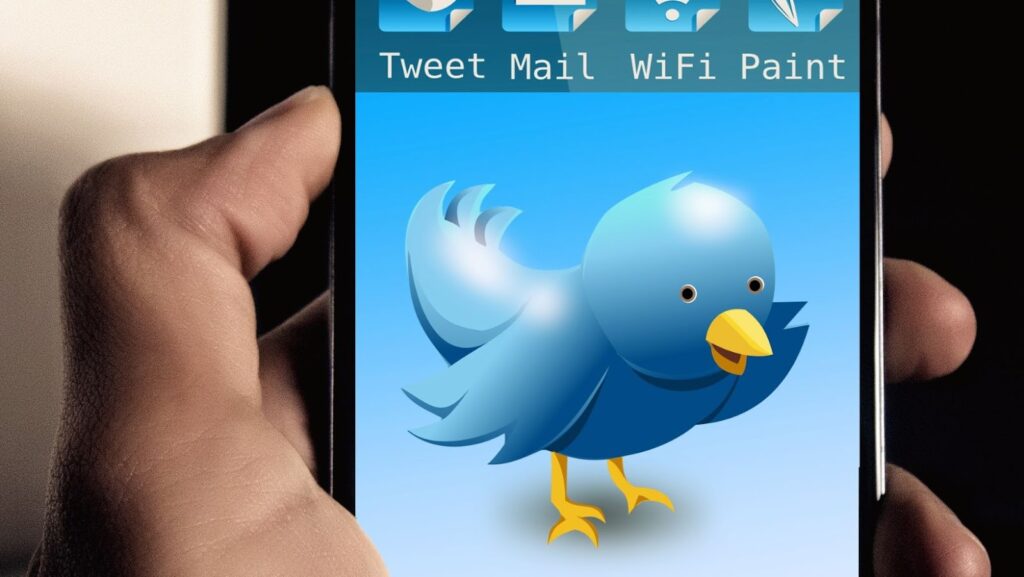
The recent controversy surrounding President Donald Trump’s use of Twitter has highlighted the importance of preserving online content as part of the congressional record. The issue is that when former presidents leave office their tweets lose their impact, so it becomes increasingly important to ensure they are archived properly, which Twitter has decided not to do.
Thus, this paper will look at President Trump’s tweets’ impact on the National Archive, by analyzing what the implications of this decision are for historians and the public at large. To do this, background information about President Trump’s use of Twitter and its implications will be explored before looking into how different organizations including Twitter and the National Archives respond to this issue. Finally, recommendations will be made for addressing these issues effectively to preserve digital information for future generations.

Historical Context
President Trump’s tweets have become a permanent part of the national discourse, raising issues of historical posterity and long-term documentation. As such, the National Archive and Records Administration recently attempted to acquire President Trump’s tweets for archival purposes. However, Twitter refused to grant permission for the National Archive to host the President’s tweets, which has significantly impacted how these messages are stored and preserved for future generations.
This section will explore the implications of this decision and its broader implications for American history.
The National Archive and Records Administration
The National Archives and Records Administration (NARA) is an independent federal agency responsible for preserving important documents, data and artifacts that constitute the United States public record. It was founded in 1934 by an Executive Order issued by President Franklin D. Roosevelt as part of the New Deal. The collection housed in the National Archives includes such items as presidential papers, treaties, congressional and Supreme Court records, military records, photographs, audio-visual recordings and much more.
Given its role as a repository for historical documents and its obligation to protect the record of American history, it is not surprising that NARA has expressed alarm at Twitter’s ban on President Trump from its platform. In January 2021, NARA Director David Ferriero wrote to Twitter CEO Jack Dorsey asking that his company remove President Donald Trump’s tweets from their platform but still make them accessible to those interested in preserving them via the National Archive.
Although Twitter refused to host Trump’s deleted tweets on their platform or make them available through archives such as the NARA, they did agree to send copies of select tweets to news outlets for preservation purposes. However, it remains unclear what will become of these tweets once news outlets are no longer required or have chosen to archive them for future reference or research. Given this uncertainty, it might be worth considering other ways outside of Twitter to ensure preservation of all parts of modern history including social media comments made by world leaders like Donald Trump even if many prove controversial now or might in the long run be deemed inappropriate or damaging.
The Presidential Records Act
The Presidential Records Act (PRA), 44 USC 2201-2207, governs the official documents, records and other written materials created or received by the president, White House staff and other presidential appointees during their service in an administration. Passed in 1978, the PRA requires that these documents be preserved and managed according to established regulations.
In 1985 President Ronald Reagan issued Executive Order 12667 requiring all materials related to former Presidents to be transferred to the National Archives and Records Administration where they would be made accessible to researchers following the requirements of the PRA.
With the advent of communications technology, including social media outlets such as Twitter, new difficulties have arisen in archiving these presidential records due to various factors such as size limitations and access restrictions on certain sites. This has become especially relevant now that former President Donald Trump has been barred from many popular sites such as Twitter due to his habit of posting false information or inciting violence against others. As a result, it is now up to those managing the National Archive how best to capture his tweets for preservation purposes while also preserving public access.

Trump’s tweets
Donald Trump’s tweets have been a subject of much controversy over the last few years. More recently, Twitter announced it won’t host Trump’s tweets for the National Archive.
This decision has led to much debate on the impact of Trump’s tweets on the National Archive. This article will explore the implications of this move on the National Archive.
How Trump’s tweets are different from other presidents
The National Archives, an agency that preserves U.S. history, is struggling to keep up with the outpouring of tweets from President Trump’s Twitter account. Traditional archiving techniques, such as paper filing or digital preservation, are no match for his prolific and fast-paced tweets, bypassing platform rules by running over the 280-character limit and being retweeted without fact-checking.
Trump’s tweets stand out from other presidents regarding volume and content. According to the Atlantic Council Digital Forensics Lab, 114 million people have interacted with Trump’s tweets since he took office in 2016 — including those who quote-tweeted or retweeted his messages — compared to 28 million for both former Presidents Barack Obama and George W. Bush combined over their respective tenures in office.
Many of Trump’s tweets contain controversial statements that may be considered violations of Twitter’s policy — such as inciteful rhetoric or suggestions of election fraud — that carry a heightened risk of information manipulation, distortion and potential misinformation campaigns following their release. As a result, even though Twitter hosts President Trump’s tweets on its platform like any other user’s content, it will not make them available to be preserved in the National Archive because they could potentially cause harm or be used to spread false information. Ultimately this means that important data on political discourse is more difficult to access if it can’t be kept safe in an archive for future reference.
Impact of Trump’s tweets on the National Archive
In January 2021, Twitter said it would not provide the National Archive with copies of former President Donald Trump’s tweets. This decision raised questions among librarians and archivists about how his remarks will be preserved for future generations.
The danger of not preserving these tweets is that historians won’t have easy access to one of the most provocative developments of Trump’s presidency: how he used his social media platform to shape public opinion. Moreover, without having a record of these tweets, some historians worry that they won’t be able to accurately capture the impact Trump’s social media activity had on public discourse, political culture and more broadly, on history itself.
The National Archive collects information on all U.S. presidents since Herbert Hoover in 1929, including their official records and significant documents. This includes preserving presidential proclamations, executive orders, emails, documents and recordings for historical purposes and ensuring citizens can access them via requests under the Freedom of Information Act or other legal tools.
Twitter’s decision to withhold Trump’s tweets from the National Archive has led other organizations seeking to preserve this part of his historic tenure in office to step up. The University of Michigan Library has launched its “Saving Our Public Memory” project which seeks donations from individuals willing to assist with buying all available copies of tweets, retweets and replies for January 2017-January 2021 by president @realDonaldTrump
The data gathered will then be freely accessible online so citizens can still consult it forever as a key part of understanding Donald Trump’s presidency in years ahead. This database will ensure Trump’s Twitter activity is properly documented and preserved as an important part of 21st-century history — regardless of whether Twitter wants it.

Twitter won’t even host Trump’s tweets for the National Archive
Twitter recently announced that it will no longer be hosting President Donald Trump’s tweets on its platform for the National Archive. This decision has caused a stir in the political landscape, with many questioning the implications of this move.
This article will look at Twitter’s response and its potential impact on the National Archive.
Twitter’s decision not to host Trump’s tweets for the National Archive
Twitter recently announced that it would not provide the National Archives with Donald Trump’s tweets for inclusion in its archives. The National Archives has traditionally included records from all past U.S. presidents and presidential candidates, regardless of their affiliation or party.
The decision by Twitter to bar the National Archives from archiving Trump’s tweets has been widely seen as a political statement. However, the company said it had decided to take this route because of its values and because “the use of Twitter to shape public discourse is inextricably linked to how our service is used now — and how it may be interpreted in the future”.
This move by Twitter highlights the growing concern over how internet content is preserved and accessed by generations to come, particularly where controversial figures like Donald Trump are concerned. As online communication continues to change and evolve, platforms need to consider their role in providing access to information that can be used for research and analysis into the public discourse of previous generations.
Potential implications of Twitter’s decision
Twitter’s decision to not allow the National Archives to host or store Donald Trump’s tweets highlights some potential risks. The potential implications of this decision may greatly impact future historical records and access to these records. This could create difficulty in accessing an accurate record of events, particularly during key historical points.
Limiting hosted access to this kind of information increases the risk that news accounts and public reporting will be biased or incomplete in time due to censorship and limited access. This could then have consequences on future laws, governance and historical accounts of events based upon verified accounts accessible through archiving.
Additionally, this could lead to the proliferation of fake news being shared on other platforms that may not provide the same level of oversight and verification as Twitter provides for its users, thus potentially creating a distorted perception among the public about important events. Similarly, if inaccurate information is circulated about a certain event long after it has passed, it can be hard for citizens and investigators alike to trust its accuracy. These limitations could be damaging both from a political perspective and from a national security angle given the need for accurate records regarding foreign policy matters such as treaties between countries or international meetings involving heads of state.
Conclusion
In conclusion, Donald Trump’s tweets have significantly impacted the National Archives in numerous ways, from how it manages its content to how it handles archiving and preserving records.
Trump’s tweets have changed how archives are managed and urged archives to be more cautious with the content they acquire and store. Moreover, Twitter’s recent decision not to host Trump’s tweets for historical preservation forces archives to find other methods of preserving documents related to Trump.
Ultimately, this situation presents an opportunity for archives to look at alternative methods of storing information that is both secure and reliable while also remaining accessible.






